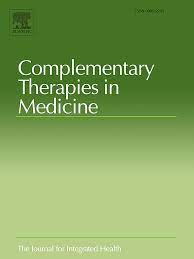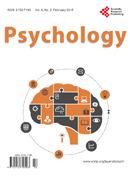Research Library
You can search for publications by selecting a category or keyword. All publications containing the selected category or keyword will be displayed below.
Categories
Keywords
Categories
Keywords
- Show all
- ADHD
- Anxiety/Panic
- Burnout
- Cancer
- Cardiovascular disease
- Chronic pain
- Cognitive function
- Cortisol/DHEA
- Costs
- Dementia
- Depressie
- Diabetes
- Global Coherence
- Hypertension
- Intuition & Consiousness
- Kids/Youth
- Leadership
- Meditation/Mindfulness
- Metabolic Syndrome
- Obesity/Eating disorder
- Pregnancy
- PTSD
- Resilience
- Schizophrenia
- Science HRV & Coherence
- Sleep quality & fatigue
- Social Coherence
- Stress
Psychophysiological coherence training to moderate air traffic controllers’ fatigue on rotating roster

The nature of the current rotating roster, providing 24-h air traffic services over five irregular shifts, leads to accumulated fatigue which impairs air traffic controllers’ cognitive function and task performance. It is imperative to develop an effective fatigue risk management system to improve aviation safety based upon scientific approaches. Two empirical studies were conducted to address this issue. Study 1 investigated the mixed effect of circadian rhythm disorders and resource depletion on controllers’ accumulated fatigue. Then, study 2 proposed a potential biofeedback solution of quick coherence technique which can mitigate air traffic controllers’ (ATCOs’) fatigue while on
read more...Psychophysical Coherence Training Regulating Air Traffic Controller's Heart Rate Variability and Resilience to Fatigue

Abstract. Heart Rate Variability (HRV) can reflect individuals’ cognitive workload objectively. HRV measurement is a non-invasive method to evaluate relevant physiological changes in a human body. Physiological changes and cognitive processes are associated with the cardiac dynamic autonomic control, and thus to influence individuals’ ability to cope with fatigue and achieve resilience. As a dynamic process to be learned, resilience can be formed and improved through Quick Coherence Training in a short time. To study the regulatory effects of
read more...Heart rate variability biofeedback in chronic disease management: A systematic review

Background: Heart rate variability biofeedback (HRVB) is a non-pharmacological intervention used in the management of chronic diseases.
Method: A systematic search was performed according to eligibility criteria including adult chronic patients, HRVB as main treatment with or without control conditions, and psychophysiological outcomes as dependent variables.
Results: In total, 29 articles were included. Reported results showed the feasibility of HRVB in chronic patients without adverse effects.
Heart Rate Variability Biofeedback Improves Emotional and Physical Health and Performance: A Systematic Review and Meta Analysis

We performed a systematic and meta analytic review of heart rate variability biofeedback (HRVB) for various symptoms and human functioning. We analyzed all problems addressed by HRVB and all outcome measures in all studies, whether or not relevant to the studied population, among randomly controlled studies. Targets included various biological and psy-chological problems and issues with athletic, cognitive, and artistic performance. Our initial review yielded 1868 papers, from which 58 met inclusion criteria. A significant small to moderate effect size was found favoring HRVB, which does not differ from that of other effective treatments. With
read more...Stress Management Based on Trait-Anxiety Levels and Sleep Quality in Middle-Aged Employees Confronted with Psychosocial Chronic Stress

A stress management program using cardiac coherence was implemented after an organizational down-sizing. The study was conducted in nine voluntary workers in order to evaluate the efficiency of the program. A baseline evaluation was conducted on psychological variables (anxiety, perceived-stress, well- being and sleep), endocrine assessments (urinary cortisol excretion, alpha-amylase and salivary concentrations) and physiological recordings (sleep and heart rate variability). The low number of
read more...